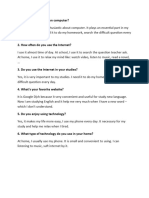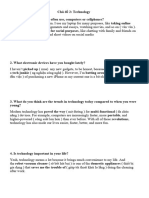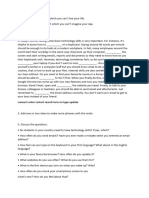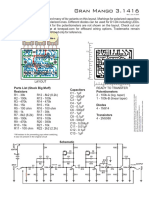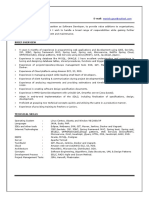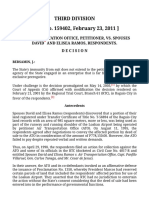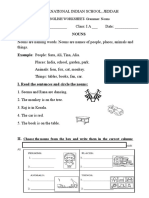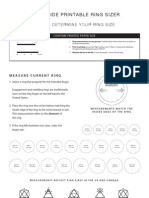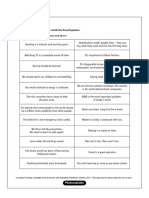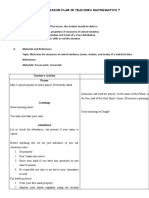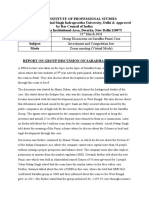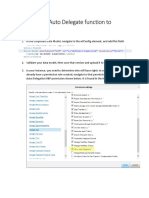Topic : computer and internet.
Part 1: Personal Questions/Interviews
1. How often do you use a computer?
I use a computer almost every day, especially for my studies and personal
projects. It has become an essential tool for me.
2. What kinds of computers are popular in your country?
In my country, laptops are very popular because they are portable and
convenient for students and professionals. Desktop computers are also
common, especially in offices.
3. What do you often use the internet for?
I often use the internet for research, studying, and staying connected with
friends and family through social media. I also enjoy watching videos and
reading articles online.
4. Who taught you to use a computer?
I learned to use a computer from my older brother. He showed me the
basics when I was young, and I gradually learned more through practice
and online tutorials.
5. Do you think that computers have changed your life a lot?
Yes, I believe computers have significantly changed my life. They have
made it easier for me to access information, communicate with others, and
complete my assignments more efficiently.
6. How do you get on the internet?
I usually connect to the internet through Wi-Fi at home or at school. I also
use mobile data on my phone when I’m on the go.
7. Is the internet very popular in your country?
Yes, the internet is extremely popular in my country. Most people use it for
various purposes, including education, entertainment, and communication.
8. How can people learn things on the internet?
People can learn things on the internet through online courses,
educational videos, articles, and forums. There are many resources
available that cater to different learning styles.
Part 2: Describe a Piece of Technology That You Like Using
What it is:
� One piece of technology that I really enjoy using is my tablet.
How did you get it:
I received it as a gift from my parents on my birthday last year. They
thought it would be useful for my studies.
How did you learn from it:
I learned to use my tablet by exploring its features and downloading
educational apps. I also watched tutorial videos ( video hướng dẫn )
online to understand how to maximize ( tối ưu hoá )n its potential ( tiềm
năng )
How often do you use it:
I use my tablet daily, especially for reading e-books, taking notes during
lectures, and browsing the internet for information.
Explain why you like it:
I like my tablet because it is lightweight ( nhẹ ) and portable ( mang
vác tiện lợi ), making it easy to carry around (mang đi ) . It has a long
battery life ( dung lượng pin ) , and I can access ( truy cập ) a wide
range of educational resources ( tài nguyên ). It helps me stay
organized ( ngăn nắp , trật tự ) and makes studying more enjoyable.
Part 3: Discussion
1. What is the most common technology used by people in your country, and
the second most?
The most common technology used in my country is smartphones, as they
are essential for communication and accessing information. The second
most common would be laptops, especially among students and
professionals.
2. Are there any other places that need technology?
Yes, many rural areas in my country need better access to technology.
Improved internet connectivity and access to computers can help enhance
education and economic opportunities in those regions.
3. Is it possible to live without technology?
While it is possible to live without technology, it would be very challenging
in today’s world. Technology plays a crucial role in communication,
education, and daily tasks, making life more convenient.
4. What are the advantages and disadvantages of technology?
The advantages of technology include improved communication, access
to information, and increased efficiency in various tasks. However,
� disadvantages can include over-reliance on devices, privacy concerns,
and the potential for social isolation.
5. How do you think technology can change the way people work in the
future?
I believe technology will continue to change the way people work by
increasing remote work opportunities, automating repetitive tasks, and
enhancing collaboration through digital tools. This will likely lead to more
flexible work environments and a greater emphasis on digital skills.


















